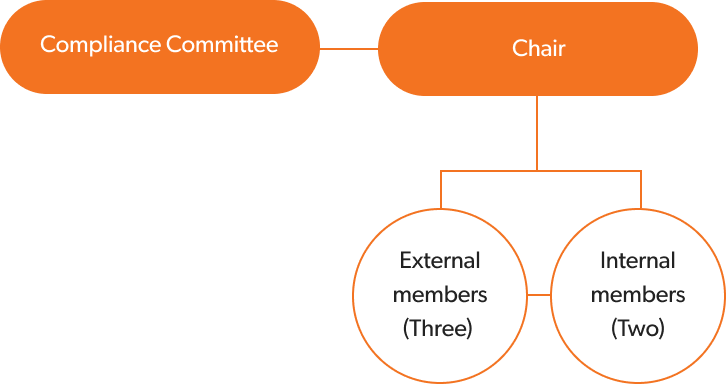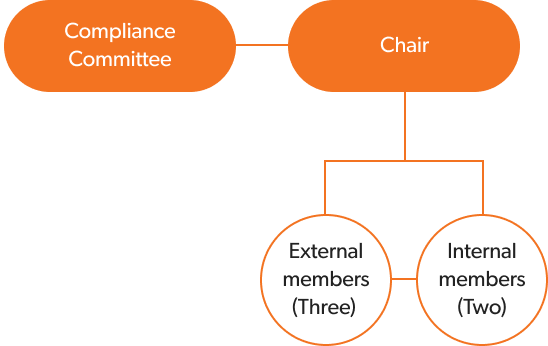01. Board autonomy
As the company’s highest decision-making body, the Board of Directors must be independent from
senior management and controlling shareholders. All Hanwha’s listed companies ensure board
autonomy by appointing outside directors, who comprise a majority of each respective board.
Outside directors are selected as candidates by the board through recommendations from the
Executive Candidate Recommendation Committee or the Outside Director Candidate Recommendation
Committee, and finally they are appointed through a resolution at the General Meeting of
Shareholders. For fair operation, Hanwha’s policy prohibits the tenure of any outside director
from exceeding six years, and no one from a Hanwha affiliate can serve as an outside director.
Hanwha Energy, even though it is not a listed company, is enhancing governance transparency by
ensuring that two members of its five-member board are outside directors.
02. Board of Directors diversity and expertise
Hanwha is strengthening the diversity and expertise of its Board of Directors by appointing outside directors with expertise and experience in specific fields. As an eco-friendly energy company with a global mindset, Hanwha Solutions operates a multinational board that has become more diverse with the addition of outside directors from overseas. Likewise, Hanwha Solutions and the Group's other six subsidiaries—Hanwha Corporation, Hanwha Aerospace, Hanwha Solutions, Hanwha Life, Hanwha Investment & Securities, and Hanwha Engine—have achieved greater gender balance on their boards in recent years by choosing women to serve as outside directors. During their first two years, all board members undergo a comprehensive assessment of their performance and expertise. The results determine their eligibility for reappointment.
03. Corporate Governance Charter
Our nine listed companies, including Hanwha Corporation, Hanwha Aerospace, Hanwha Solutions, Hanwha Life, Hanwha General Insurance, Hanwha Investment & Securities, Hanwha Systems, Hanwha Ocean, and Hanwha Engine have all established Corporate Governance Charters. This step forward strengthens competitiveness and builds a balanced governance system with mutual checks to ensure fairness, transparency, and independence. These charters specify the authority and responsibilities of the Board of Directors and Audit Committee to ensure sound governance as well as the protection of stakeholder rights, including the rights of shareholders, customers, partners, executives, and employees. They also set out principles and standards consistent with international corporate governance practices and are posted on each company’s website for easy access.








